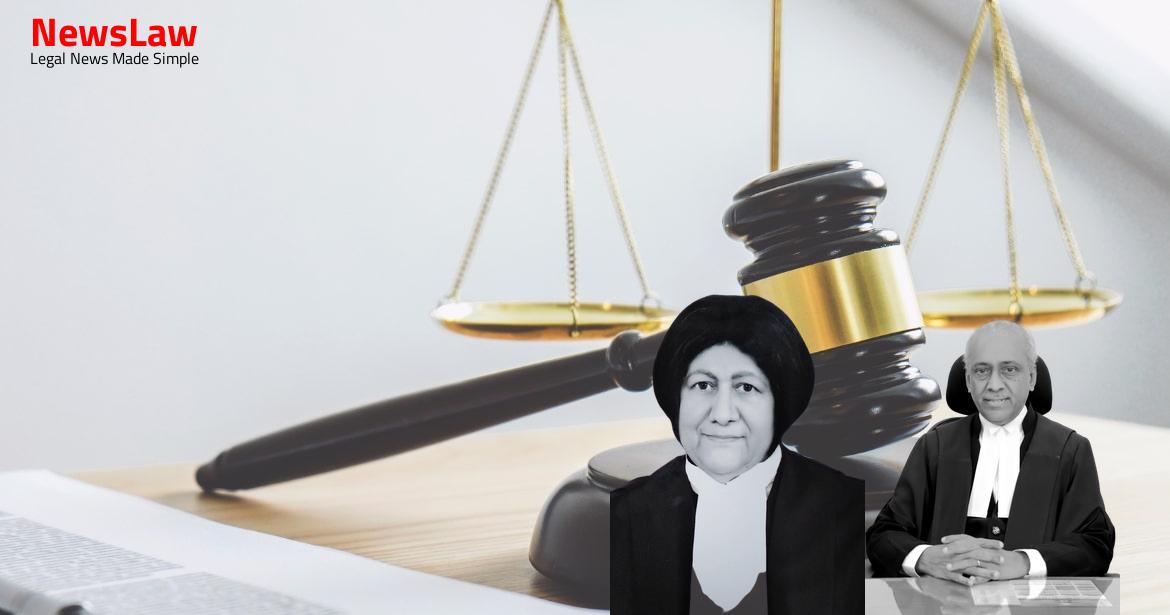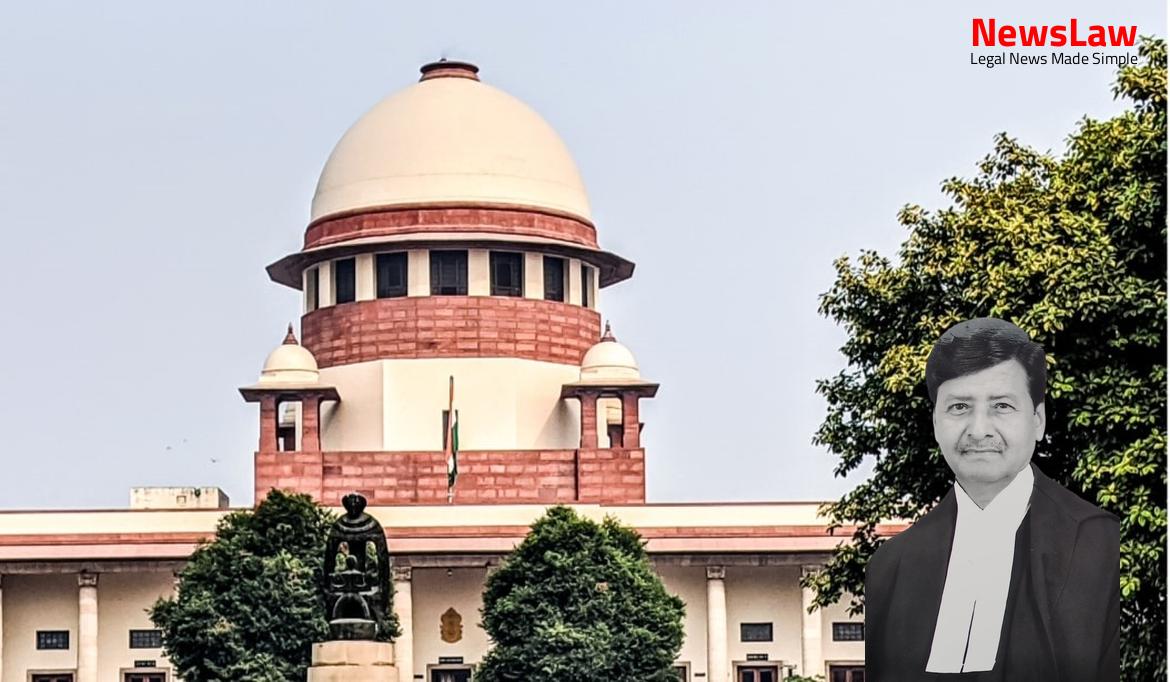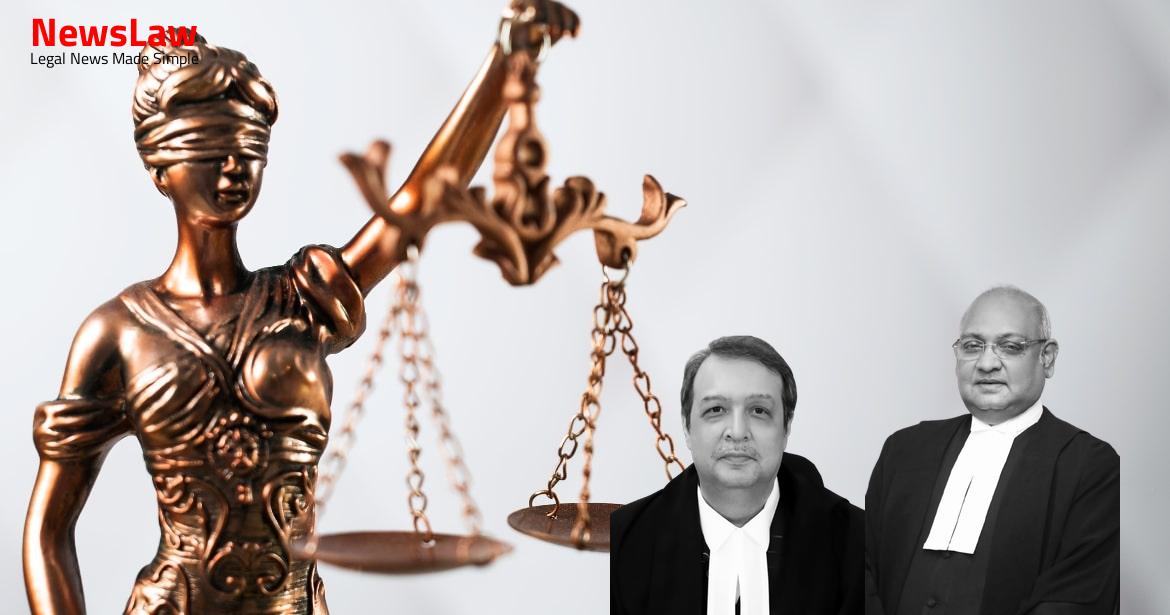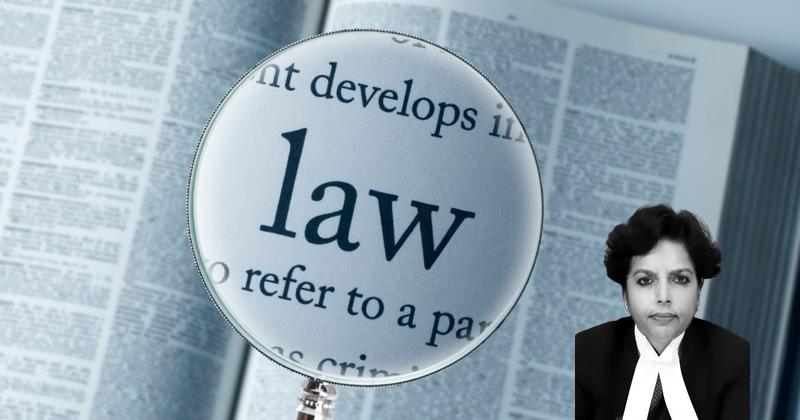In a recent case, a court conducted a thorough legal analysis on an externment order, scrutinizing the application of law and principles. The court’s focus was on the justification and legal basis of the order, emphasizing the importance of objective evidence and necessity for such actions. Stay tuned to delve into the intricate legal analysis of this case.
Facts
- The appeal is against the final judgment and order dated 29 January, 2021 passed by the Nagpur Bench of the High Court of Judicature at Bombay.
- The High Court dismissed the Criminal Writ Petition challenging an Externment Order dated 07.05.2018 passed by the Deputy Commissioner of Police under Section 56(1)(a)(b) of the Maharashtra Police Act.
- The Externment Order directed the Appellant not to enter or return to Amravati City or Amravati Rural District for a period of one year.
- Paragraphs 1 and 2 of the Externment Order were specifically mentioned in the summary.
- The Appellant applied for and was granted bail by the Sessions Court with the condition to attend the Police Station until the chargesheet was filed.
- The State of Maharashtra disbursed grants to 33 Madrasas of Amravati District in 2014-2015 amounting to Rs.1,35,70,000/-.
- The Appellant alleges that government officers, including C.R. Rathod, Deputy Director of Education, disbursed grants in violation of a Government Resolution.
- Externment proceedings were initiated against the Appellant after receiving a show cause notice on 12 April, 2018.
- The Appellant was acquitted by the Judicial Magistrate on 26 February, 2020.
- The Appellant raised concerns about irregularities in Madrasas’ operations and misappropriation of government funds.
- The Externment Order refers to three Crime Cases filed in response to FIRs against the Appellant by various individuals and officials.
- The Appellant filed RTI applications to seek information on fund disbursement and initiated actions against those involved in illegal practices.
- The FIRs were lodged soon after the Appellant began complaining and raising queries under the Right to Information Act, 2005.
- Complaints were reported about illegalities in grants distribution during Financial Years 2014-2015 and 2015-2016.
- An application under the Right to Information Act was made by the Appellant seeking details of grant distribution outcomes in 2014-2015 and 2015-2016.
- An inquiry was ordered by the Government following complaints, but no report was received by the District Planning Committee.
- The Appellant, described as a religious-minded journalist and social worker, fought against corruption in public funds.
- The Appellant replied to the Show Cause Notice contesting the allegations.
- Witnesses were reluctant to testify against the Appellant publicly fearing physical harm and property loss.
- The Appellant’s daughter studied in a Madrasa in Amravati District.
- The Appellant filed a Public Interest Litigation in the Nagpur Bench seeking specific orders.
Also Read: Land Dispute: Court’s Analysis on Condonation of Delay
Analysis
- The Maharashtra Police Act, 1954 was interpreted in the case of Pandharinath Shridhar Rangnekar v. Dy. Commr. Of Police, State of Maharashtra (1973) 1 SCC 372.
- Witnesses were reluctant to testify against the accused, hindering the externment proceedings.
- The Court held that a detailed disclosure of particulars in externment notice would defeat the purpose of the proceeding.
- In State of Maharashtra and Ors. v. Salem Hasan Khan (1989) 2 SCC 316, an individual engaged in illegal activities like narcotics business and criminal intimidation was externed.
- The satisfaction of the authority in passing an externment order must be objective and based on evidence.
- Gazi Saduddin v. State of Maharashtra (2003) 7 SCC 330 emphasized that the authority must be convinced of the necessity of externment before passing the order.
- The complaints lodged against the Appellant were not justified as they were in response to inquiries initiated by the Appellant against government officials and educational institutions.
- The order of externment against the Appellant was unwarranted and unjustified, even if there were allegations of extortion and threats.
- Exterment orders should only be issued in exceptional cases to maintain law and order, and not as a retaliatory measure.
- The complaints and FIRs against the Appellant were retaliatory and aimed at stifling his voice, rather than genuine concerns for law and order.
- The notices of externment and the subsequent order were deemed arbitrary, mala fide, and unsustainable in law in this particular case.
Also Read: Legal Analysis on Waiving Waiting Period in Mutual Divorce Cases
Case Title: RAHMAT KHAN @ RAMMU BISMILLAH KHAN Vs. DEPUTY COMMISSIONER OF POLICE (2021 INSC 424)
Case Number: Crl.A. No.-000912-000912 / 2021



